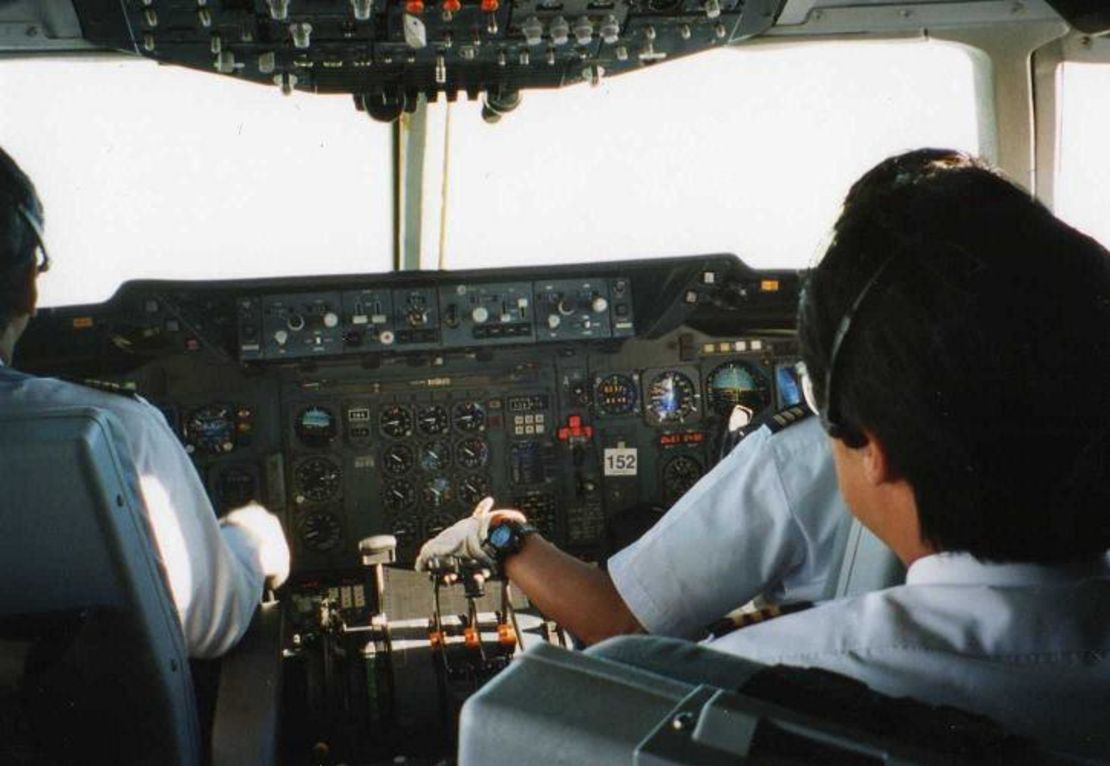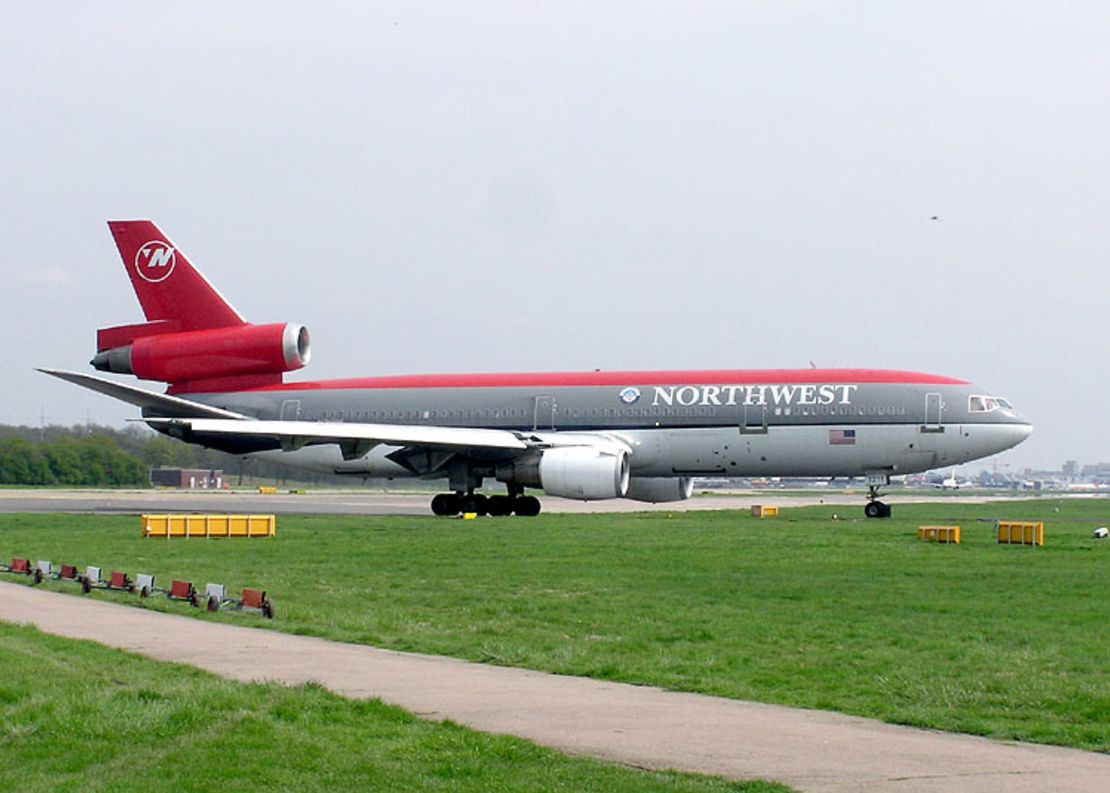Story highlights
Biman Bangladesh Airlines will operate final DC-10 passenger service on December 7
DC-10 has had checkered past, including high-profile accidents
The plane debuted in 1971 on a flight between Los Angeles and Chicago
A special "last chance" flight for enthusiasts is planned for February
Some commercial jets receive soaring fanfare when they hang up their wings.
Remember all that fuss over the Concorde?
Now it’s the McDonnell Douglas DC-10’s turn.
But what sort of retirement party awaits the airline industry’s final scheduled DC-10 passenger flight?
The final-flight honor goes to Bangladesh Biman Airlines, operator of the world’s last passenger DC-10 – which the airline says will be making its final scheduled flight on December 7, on an otherwise routine flight. (The airline hasn’t said which route the plane will fly.)
More: China opens futuristic airport terminal
The aircraft will then remain grounded in standby mode while awaiting the arrival of its successor, a shiny new Boeing B777-300ER – and eventual shipment to an undisclosed aviation museum in the United States.
While passenger service comes to an end for the iconic, wide-body, three-engine workhorse of late-20th-century air travel, the DC-10 won’t completely disappear from the skies.
It’s still commonly used by cargo companies, such as FedEx and Purolator.
More: Breathtaking photos of Hong Kong airport’s glory days

Last chance for ‘genuine aviation enthusiasts’ to fly DC-10
For DC-10 fans (we know you’re out there) mourning the end of an era, Biman has since announced one last chance to experience the DC-10 in action – even if you’re not a box with an overnight label.
In February 2014, Biman Bangladesh Airlines plans to fly passengers from the Bangladesh capital of Dhaka to Birmingham, England, on its retired DC-10, one last time.
It’s “a fitting end for an aircraft that has served Biman loyally and well over many years,” states the airline, which plans to start selling tickets for this special bonus voyage on its website by early January.
More: Most creative ways to recycle a plane
“We want these tickets to go to genuine aviation enthusiasts,” says Biman CEO Kevin Steele on the company’s news page, adding that some short scenic flights out of Birmingham might also be added to the DC-10 farewell tour, depending on public demand.
What’s the projected demand? No word on that yet.

DC-10’s checkered history
McDonnell Douglas’s famous (and at times infamous) jetliner logged its maiden voyage for passengers on August 5, 1971, on an American Airlines round trip between Los Angeles and Chicago.
At the time, the plane filled an industry need for an innovative aircraft smaller than a 747 with long-range capabilities that could serve airports with shorter runways.
A staple of several major airlines over four decades – McDonnell Douglas produced its 446th, and last, DC-10 in 1989 for Nigeria Airways – the aircraft would be hampered by tragic accidents, including a horrific American Airlines Flight 191 crash at Chicago’s O’Hare International Airport in 1979 resulting from a separated engine ripping through a wing shortly after takeoff.
The incident would lead to an FAA grounding of all DC-10s in the United States for more than a month and stoke widespread public fear about the DC-10 – despite findings that a maintenance error was largely the cause.
More: Skip the pasta! And other unsavory truths about airplane food
Though few major DC-10 incidents were actually due to mechanical issues alone, and the aircraft’s safety record would steadily improve as design flaws were fixed, public confidence in the aircraft was never fully restored.
Wired magazine would call the DC-10 the fifth worst “stupid engineering mistake” in history.
Others called that label unfair.
“The DC-10 had its share of high-profile accidents,” noted a Los Angeles Times editorial in 2007, when Northwest Airlines became the last major carrier to retire it from passenger service in the United States – replacing it with an Airbus 330. “But so have the much-less-maligned Boeing 737 and 747, the latter of which has a fatal-accident rate close to the DC-10’s.”
Economics factor in retirement
A more significant factor behind the DC-10 retirement wave relates to fuel efficiency and cost.
Newer aircraft use less fuel, making DC-10s a more expensive airliner to operate.
It also requires a three-man crew, including a second officer or flight engineer – an overhead-boosting rarity these days.
Even if today’s harried commercial passengers aren’t exactly missing DC-10s (let alone knowing what makes one different than, say, an MD-11), some of its past pilots have nice things to say about them.
More: 20 most annoying things people do on planes
“The DC-10 is a reliable airplane, fun to fly, roomy and quiet. Kind of like flying an old Cadillac Fleetwood,” noted a spokesman for the Northwest chapter of the Air Line Pilots Association when the planes were shelved in the United States six years ago. “We’re sad to see an old friend go.”
Cut to 2013.
Who would have thought the last flying Cadillac Fleetwood would be making its swan song from Bangladesh?
And just how sad is Biman Bangladesh Airlines to see an old friend go?
“We hope you will join with us in celebrating the farewell of a loyal, beautiful aircraft,” says Biman’s Steele. “But also to recognize that the time has now come for Biman to equip itself with the very latest in new aircraft and technology.”
More: Boeing through the ages. Planes that changed the way we travel







